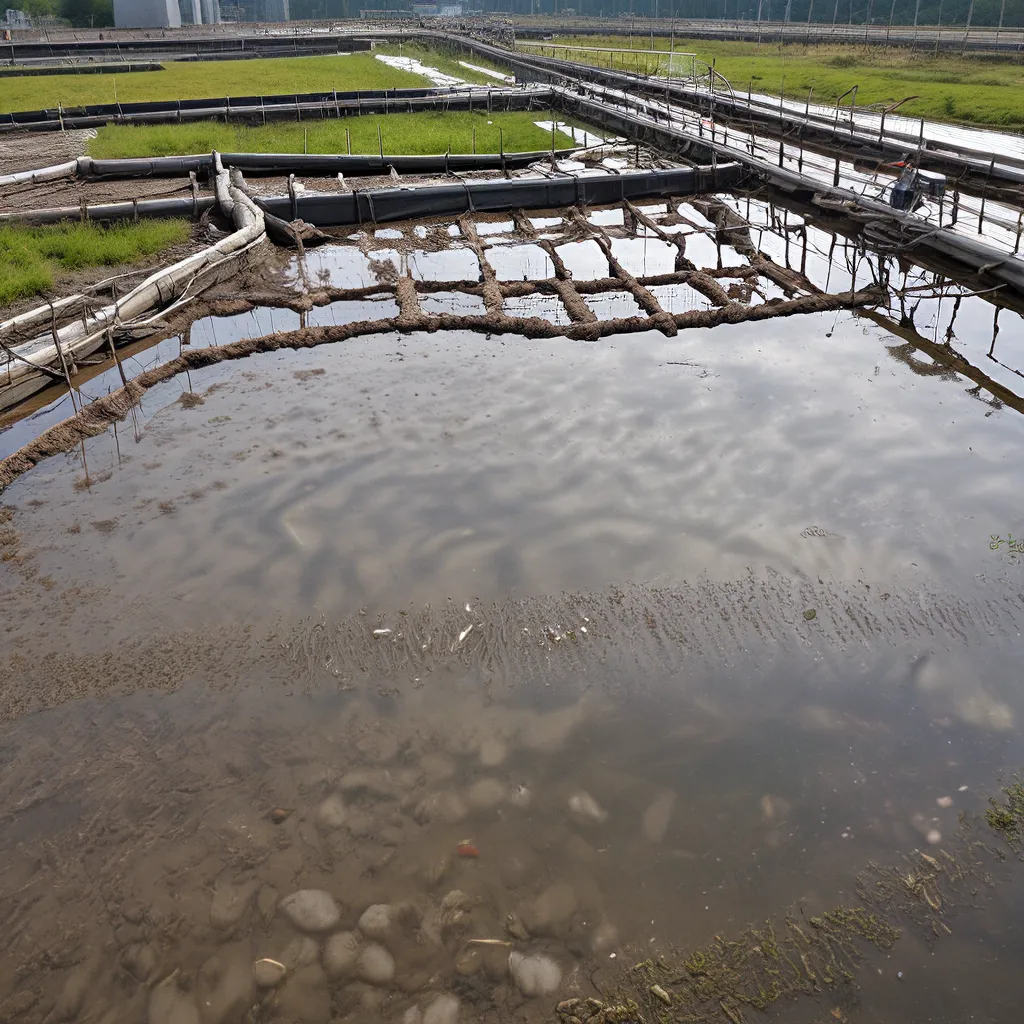
In the ever-evolving landscape of sustainability and environmental stewardship, the wastewater treatment industry has emerged as a pivotal player in the bioeconomy. As we strive to unlock the potential of waste resources and drive towards a more circular economy, the role of wastewater treatment has become increasingly vital.
Tapping into the Bioeconomy: Transforming Waste into Valuable Resources
The bioeconomy is a thriving ecosystem where the biological resources of our planet are harnessed to create a diverse array of products, fuels, and materials. And within this paradigm, the wastewater treatment industry is poised to play a transformative role. By leveraging advanced technologies and innovative processes, I’ve discovered that we can extract valuable resources from what was once considered mere waste.
One of the most exciting developments in this realm is the production of biofuels from the organic matter present in wastewater. Through the process of anaerobic digestion, the methane generated can be captured and refined into a sustainable energy source. This not only reduces our reliance on fossil fuels but also contributes to the circular economy by turning a waste stream into a valuable commodity.
But the potential of wastewater doesn’t stop there. Many municipal and industrial facilities are now exploring the extraction of other valuable materials, such as phosphorus, nitrogen, and cellulose. These resources can be refined and repurposed for a wide range of applications, from agricultural fertilizers to bioplastic production. Imagine the possibilities when we view wastewater as a treasure trove of untapped potential, rather than just a problem to be managed.
Unlocking the Power of Wastewater: Innovative Technologies and Approaches
The transformation of wastewater into a valuable resource is not just a lofty goal – it’s an active area of research and development. Across the globe, scientists, engineers, and industry leaders are collaborating to push the boundaries of wastewater treatment technology.
One particularly exciting development is the use of bioelectrochemical systems, which leverage the power of microorganisms to generate electricity and recover resources from wastewater. By harnessing the natural metabolic processes of these microscopic powerhouses, we can transform wastewater into a source of renewable energy and valuable byproducts.
Another innovative approach is the integration of membrane technologies into wastewater treatment processes. These advanced filters can selectively separate and concentrate valuable compounds, making the extraction and purification process more efficient. As I’ve learned, membrane bioreactors are becoming increasingly popular for their ability to improve water quality while recovering valuable resources.
But the advancements in wastewater treatment don’t stop there. Researchers are also exploring the potential of machine learning and artificial intelligence to optimize the efficiency and effectiveness of these systems. By leveraging data-driven insights, we can fine-tune our processes, anticipate challenges, and maximize the recovery of valuable resources from wastewater.
Overcoming Challenges and Embracing the Future of Wastewater Treatment
Of course, as with any transformative industry, the wastewater treatment sector is not without its challenges. One of the primary hurdles is the need for significant investments in infrastructure and technology upgrades. Transitioning from traditional wastewater management to a more resource-recovery-focused approach can require substantial capital and collaboration between the public and private sectors.
Additionally, regulatory frameworks and public perceptions around the use of reclaimed water and recovered resources can also present obstacles. Overcoming these barriers will require a concerted effort to educate and engage with stakeholders, from policymakers to the general public.
Despite these challenges, I’m confident in the future of wastewater treatment and its pivotal role in the bioeconomy. As innovative technologies continue to emerge and public awareness grows, the perception of wastewater as a waste stream will inevitably shift to one of untapped potential.
In fact, the United States Environmental Protection Agency (EPA) has recognized the immense value of wastewater treatment in the circular economy, stating that “wastewater treatment plants can be hubs for resource recovery, energy production, and economic development.” This governmental endorsement underscores the growing significance of the wastewater treatment industry in the broader sustainability landscape.
Embracing the Future: Wastewater Treatment and the Bioeconomy
As I contemplate the future of wastewater treatment and its role in the bioeconomy, I can’t help but feel a sense of excitement and optimism. The potential to transform waste into valuable resources is not only environmentally responsible but also economically promising.
Recent research has suggested that the global bioeconomy could be worth up to $1.7 trillion by 2030, and the wastewater treatment industry is poised to play a pivotal role in this burgeoning market.
By embracing the principles of the bioeconomy, the wastewater treatment industry can unlock new revenue streams, create jobs, and contribute to a more sustainable future. And as I’ve discovered, the possibilities are truly endless – from biofuel production to resource recovery and beyond.
So, as I reflect on this exciting era of wastewater treatment and the bioeconomy, I can’t help but feel a sense of optimism and a renewed appreciation for the transformative power of the waste resources we’ve long overlooked. The future is bright, and I’m thrilled to be a part of this dynamic and evolving industry.
In fact, I’m so excited about the potential of wastewater treatment in the bioeconomy that I’d encourage you to explore the services offered by Alpha Wastewater. Their innovative and forward-thinking approach to resource recovery and sustainable wastewater management could be the key to unlocking untapped value in your own operations.
So, let’s embrace the power of the bioeconomy and redefine the way we think about wastewater. The future is ours to shape, and with the right technologies, partnerships, and vision, I’m confident that we can transform waste into wealth and create a more sustainable tomorrow.